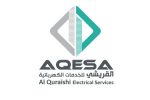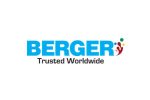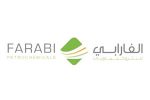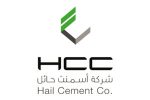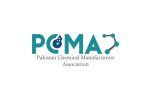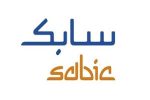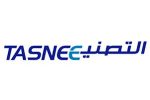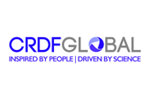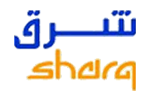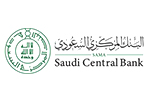Quality Management System

Consistently meeting product or service requirements and addressing the future needs and expectations of the stakeholders poses a great challenge for the organizations in an increasingly dynamic and complex environment.
Adopting Quality Management is a strategic decision by the organizations, a decision which can help organization in improving its performance which in turn provides a sound basis for Sustainable Development.
By teaming up with clients, CEIC provides expertise which can help organizations in:
- Providing Consistent products and services meeting customer and applicable statutory and regulatory requirements
- Facilitating opportunities to increase customer satisfaction
- Addressing risks and opportunities related to the context of the organization and its goals and objectives
- Demonstrating conformance to Quality Management System requirements
What CEIC Offers:
- Quality Manual Development
- Process Mapping
- Risks & Opportunities Identification
- Quality Procedures Development
- Training Material Development
- Development of Goals, Objectives and SMART Targets
- Internal Audit Program Development and implementation
- Management Review Trainings
- ISO 9001 Certification Coordination and Supervision
Environmental Footprint Management
Achieving a balance between the environment, society and the economy is considered essential to meet the needs of the present without compromising the needs of the future generations. Sustainable development is achieved by balancing the three pillars of Sustainability.
Societal expectations for Sustainable Development, transparency and accountability have evolved with stringent legislation, growing pressures on the environment from pollution, inefficient use of resources, improper waste management, climate change, degradation of ecosystems and loss of biodiversity.
CEIC empowers its clients to work towards achieving this balance by developing and implementing environmental initiatives and programs in conformance with the legislations and aligned with global goals on environmental sustainability.
What CEIC Offers:
- Develop framework to protect the environment and respond to changing environmental conditions aligned and balanced with socio-economic needs
- Develop Environmental Policy, strategy and Management System
- Define the correct and aligned “Context of the organization”
- Develop an effective system to address risks and opportunities with aspects and Impacts Determination
- Development of legal register and effective plan to track, monitor and implement regulatory requirements
- Development of Goals, Objectives, Targets and Management Programs
- Training on ISO 14001 and its various elements
- Development and implementation of Internal Audit Program
- Management Review Trainings & Coordination
- ISO 14001 Certification Coordination and Supervision
Health & Safety Management
Organizations of all kinds are increasingly concerned with achieving and demonstrating sound occupational health and safety (OH&S) performance by controlling their OH&S risks, consistent with their OH&S policy and objectives. They do so in the context of increasingly Stringent legislation, the development of economic policies and other measures that foster good OH&S practices, and increased concern expressed by interested parties about OH&S issues.
OHSAS 18001 Standard covering OH&S management is intended to provide organizations with the elements of an effective OH&S management system that can be integrated with other management requirements and help organizations achieve OH&S and economic objectives.
CEIC helps its clients to fulfill its OH&S obligations by developing and implementing effective programs to minimize these risks to as low as reasonably possible
CEIC offers following services to its clients :
- Health & Safety Policy, strategy and Management System Manual Development.
- Hazard Identification, Risk Assessment, and determination of controls
- Development and implementation of effective stakeholders engagement program
- Development & implementation of Goals, Objectives, Targets and Management Programs
- OHSAS 18001 Training Programs and Materials
- Development and implementation of Internal Audit Program
- Management Review Trainings & Coordination
- OHSAS 18001 Certification Coordination and Supervision
Energy Management
CEIC helps its clients to develop and establish the systems and processes necessary to improve energy performance, including energy efficiency, use and consumption. We help organizations to improve their energy footprints leading to reductions in greenhouse gas emissions and other related environmental impacts. This in turn greatly helps in reducing energy cost through systematic management of energy. CEIC ensures that the client’s personnel are trained to high competency levels in order to ensure effective implementation of the Energy Management System.
We help our clients develop the energy management system based on the Plan-Do-Check-Act (PDCA) continual improvement framework and incorporates energy management into everyday organizational practices with flexibility of integrating energy management into existing performance management system
CEIC offers following services to its clients :
- Develop and implement energy policy.
- Identify internal and external issues affecting organization’s energy management.
- Effective power factor management, voltage management and other energy-critical equipment management.
- Establish objectives, targets, and action plans taking into account legal requirements and information related to significant energy use.
GHG Management
Climate change has been identified as one of the greatest challenges facing nations, governments, business and citizens over future decades. Climate change has implications for both human and natural systems and could lead to significant changes in resource use, production and economic activity. In response, international, regional, national and local initiatives are being developed and implemented to limit greenhouse gas (GHG) concentrations in the Earth’s atmosphere. Such GHG initiatives rely on the quantification, monitoring, reporting and verification of GHG emissions and/or removals.
ISO 14064-2 focuses on GHG projects or project-based activities specifically designed to reduce GHG emissions or increase GHG removals. It includes principles and requirements for determining project baseline scenarios and for monitoring, quantifying and reporting project performance relative to the baseline scenario and provides the basis for GHG projects to be validated and verified.
ISO 14064-3 details principles and requirements for verifying GHG inventories and validating or verifying GHG projects. It describes the process for GHG-related validation or verification and specifies components such as validation or verification planning, assessment procedures and the evaluation of organization or project GHG assertions. ISO 14064-3 can be used by organizations or independent parties to validate or verify GHG assertions.
CEIC helps its clients to achieve these strategically important intended outcomes with a leadership focus encompassing the entire value chain in order to help these value chain partners in achieving the organization’s expectations on GHG emissions, accounting and reporting requirements.
CEIC offers following services to its clients to develop and implement:
- Programs and practices aligned with the Principles of Relevance, Completeness, Consistency, Accuracy and Transparency.
- GHG Inventory Design and Development systems.
- Organizational and operational boundaries.
- Quantification of GHG emissions and removals programs.
- Organizational activities to reduce GHG emissions and or increase GHG removals.
- Base-year inventory development and management programs and systems.
- GHG quality management system.
- Planning and developing process for GHG report development.
- Verification management system including assistance for third-party verifications for ISO 14064
Business Continuity Management
Business continuity is a holistic management process that identifies potential threats to an organization and the impacts to business operations from those threats, if realized. BCMS provides a framework for building organizational resilience with the capability of an effective response that safeguards the interests of its key stakeholders, reputation, brand and value-creating activities.
CEIC helps clients in:
- Developing and implementing Business Continuity Policy and Objectives
- Developing, implementing and operating controls and measures for managing an organization’s overall capability to manage disruptive incidents
- Monitoring and reviewing the performance and effectiveness of the BCMS
- Continual improvement based on objective measurement
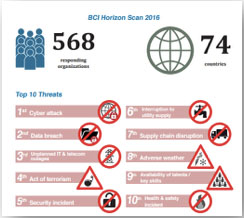
CEIC offers following services to its clients in:
- Developing, implementing and establishing BCMS requirements aligned with organization’s mission, goals, internal and external obligations, and legal and regulatory requirements
- Defining scope (scope will be revised during the BIA)
- Defining objectives, policies, and critical success factors for organization’s business continuity program
- Development of heat maps and RTOs
- Coordinating and organizing/managing the BCP plan and strategy
- Oversee the BCP process through effective control methods and change management
- Training and awareness of the BCMS and its processes to management and staff
- Develop project plan and budget
- Define and recommend process structure and management
- Assistance in third-party certification in compliance with ISO 22301
Asset Management
Establishing Asset Management System enables an organization to achieve its objectives through the effective and efficient management of its assets. The application of an asset management system provides assurance that those objectives can be achieved consistently and sustainably over time.
CEIC provides expertise to its clients for:
- Defining context of the organization considering business objectives, Policies, Regulations, performance requirements and risk management
- Establishing effective interfaces using motivation, communication, knowledge, teamwork, leadership, roles and responsibilities
- Developing Asset Portfolios/Profiles, Life-Cycle costs, Capital Improvement Plans and Criteria, Value of Asset Performance, Criticality Assessment, Operating Costs
- Determination of relevant stakeholders and their requirements (i.e. their needs and expectations whether stated, implied or obligatory)
- Identification of risks and opportunities to assure the asset management system can achieve its intended outcome(s), prevent undesired effects and realize opportunities for improvement
Fully Integrated Management System
Standalone management systems are burden to any organization. The lack of coordination amongst various systems lead to duplication and overlapping of efforts and resources which in turn leads to waste of valuable resources and time.
CEIC is pioneer in the development of fully integrated management systems. These fully integrated management systems comprising of ISO 9001, ISO 14001, RC 14001, OHSAS 18001, ISO 55001, ISO 22301, ISO 14064, ISO 50001 have been developed, implemented and established for many clients in the Middle East.
The benefits of integrated systems developed through CEIC provides the following benefits:
- One Integrated Policy
- One Policies Manual addressing all the requirements of integrated standards
- One set of Tier II Procedures catering to all the standards
- Integrated trainings
- Integrated audits
- Integrated reviews
- Integrated third-party audits


